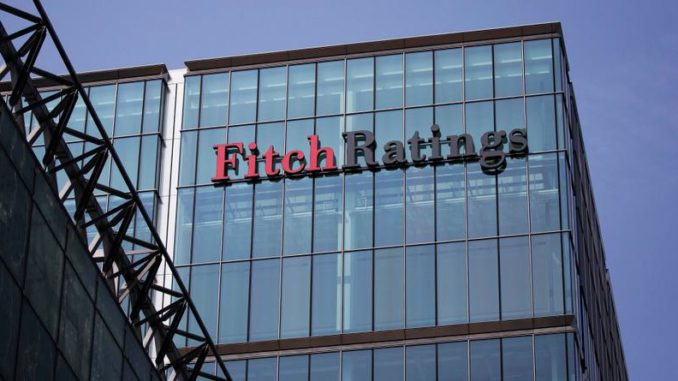Paragraph 1: Fitch Upgrades Nigerian States’ Credit Ratings
Fitch Ratings, a prominent global credit rating agency, has elevated the long-term foreign and local currency issuer default ratings of four Nigerian states – Kaduna, Kogi, Lagos, and Oyo – from ‘B-‘ to ‘B’. This positive reassessment stems from improved macroeconomic stability within Nigeria and the implementation of effective policy reforms. The upgrade, accompanied by a stable outlook, directly follows a similar upgrade of Nigeria’s sovereign credit rating earlier in the year. Fitch’s rationale emphasizes the Nigerian federal government’s significant influence on the intergovernmental fiscal framework, including the equalization mechanism that distributes funds to states. This interconnectedness means the sovereign rating upgrade has a direct bearing on these states, whose standalone credit profiles are already in line with or surpass the national rating.
Paragraph 2: Economic Factors Driving the Upgrade
Fitch’s revised projections are based on several crucial economic factors. Firstly, a projected steeper depreciation of the naira against the dollar is anticipated, although this is expected to coincide with a gradual decrease in inflation. Secondly, a significant increase in federal transfers to states, originating from Value Added Tax (VAT) and oil revenues, is expected to provide substantial financial support. However, the agency also cautions about the heightened risk of debt servicing for states with significant foreign currency-denominated debt burdens, especially given the weakening naira. The analysis delves into the specific circumstances of each state, highlighting their unique challenges and strengths.
Paragraph 3: State-Specific Financial Assessments – Kaduna and Kogi
Kaduna State faces considerable currency risk due to a large proportion of its debt being denominated in foreign currencies. Despite robust operating margins fueled by internal revenue growth and federal transfers, the state’s debt service capacity remains weak, indicated by a high payback ratio. Kogi State, similarly burdened by a high payback ratio, is tied to ambitious capital expenditure projects funded by a mix of domestic and foreign borrowing. Fitch points out Kogi’s vulnerability to fluctuations in oil revenue, which could impact its fiscal balance. These states are marked by their dependence on federal transfers and their vulnerability to external economic shocks.
Paragraph 4: State-Specific Financial Assessments – Lagos and Oyo
In contrast, Lagos State, while also holding a substantial portion of its debt in foreign currencies, demonstrates a much stronger fiscal position. Its exceptional internally generated revenue, significantly higher than the national average, underpins a robust payback ratio and an expected budget surplus. This robust financial performance reflects the state’s economic dynamism and effective revenue generation. Oyo State, with a predominantly local currency debt profile, faces less foreign exchange risk and exhibits a healthier payback ratio supported by increased federal transfers. However, concerns linger regarding Oyo’s dependence on oil revenues and weaker secondary fiscal metrics.
Paragraph 5: Environmental, Social, and Governance (ESG) Considerations
Fitch incorporates ESG risk assessment into its analysis. Kaduna, Kogi, and Oyo states all receive a high ESG relevance score related to their dependence on oil revenues, highlighting their vulnerability to commodity price fluctuations and the broader transition to a lower-carbon economy. Kaduna State faces additional ESG-related challenges, encompassing energy management, ethnic conflicts, human development indicators, and poverty levels. These social and governance factors underscore the complexity of achieving sustainable development in these states. Lagos, while financially strong, is also subject to Nigeria’s sovereign ceiling, limiting its overall rating despite its robust standalone credit profile.
Paragraph 6: Lagos State’s Response and Future Outlook
Lagos State Governor Babajide Sanwo-Olu welcomed the credit rating upgrade, viewing it as validation of the state’s economic policies and execution. He acknowledged the challenges posed by currency fluctuations but emphasized the state’s strong financial position, allowing it to manage these risks effectively. The governor reinforced the commitment to sustainable development, prioritizing projects that promote long-term growth and investment. Overall, while external risks persist, the improved financial profiles of these states, in conjunction with Nigeria’s strengthening macroeconomic environment, contribute to a more positive outlook for their future economic prospects. The upgrade signifies enhanced investor confidence and paves the way for increased access to capital markets.


